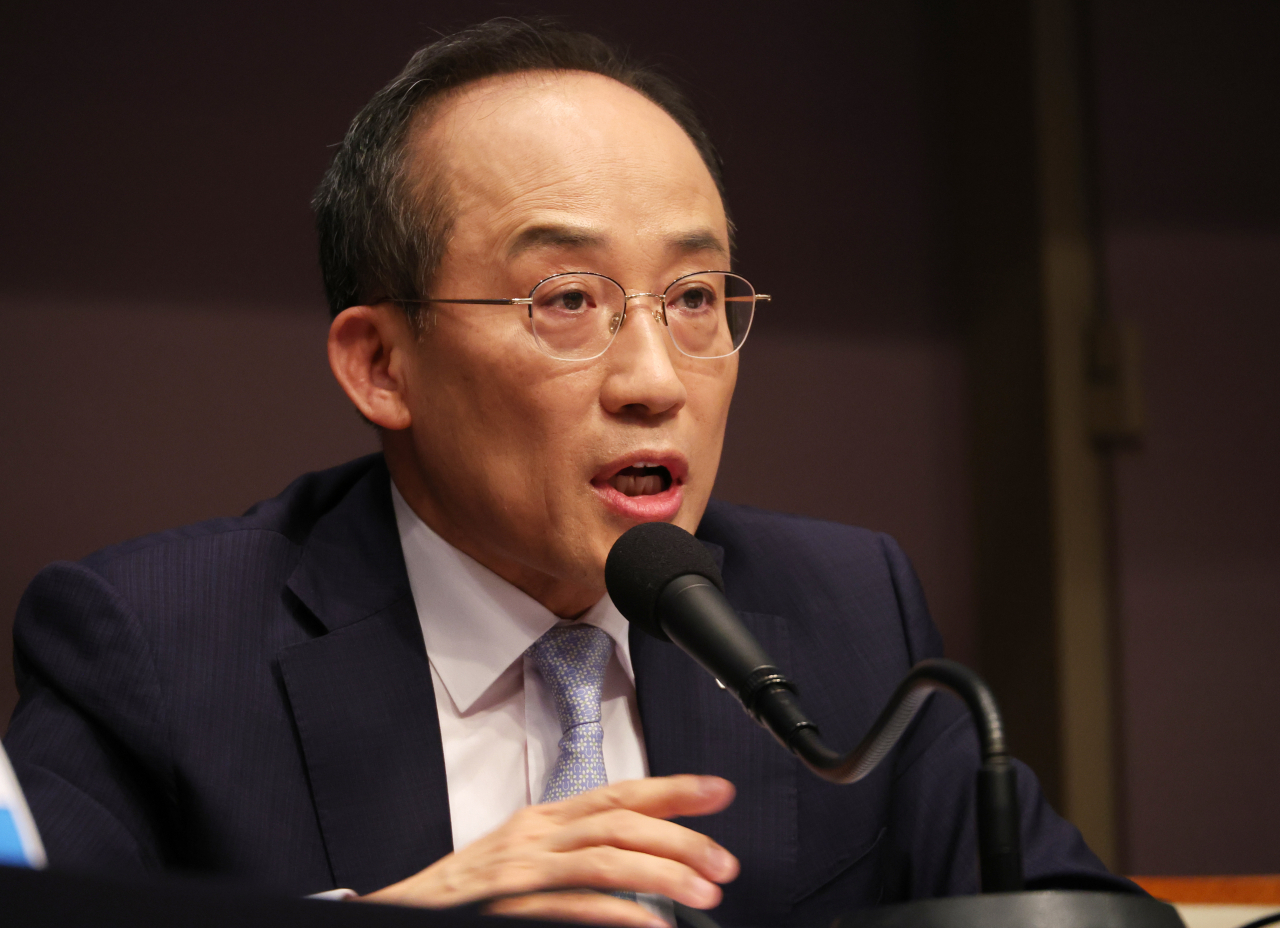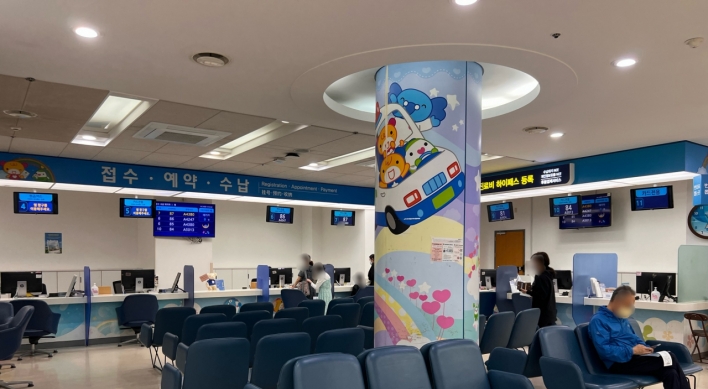Finance minister predicts trade surplus in Q4 on chip rebound, China reopening
By Song Seung-hyunPublished : June 8, 2023 - 14:54

Finance Minister Choo Kyung-ho on Thursday predicted South Korea’s trade balance is highly likely to turn surplus as early as in the fourth quarter, citing a rebound in chip prices and China’s reopening.
"In April, the trade balance was not favorable due to overseas dividend issues, but I believe that after May, it will improve," Choo said at a press conference hosted by the Kwanhun Club, an association of Korean journalists, in Seoul. "Considering this trend of decreasing trade deficits, I believe that we may see a surplus recorded in the later part of the year, specifically in the fourth quarter.”
His remarks come after the nation’s exports fell 16.1 percent on-year in the first 20 days of May. This downward trend in outbound shipments has persisted for seven consecutive months.
Additionally, trade deficit for this year has already reached $29.5 billion, surpassing more than half of the record-high annual trade deficit of $47.8 billion in 2022.
The reopening of China, coupled with the anticipated recovery in the semiconductor industry and the decreasing energy prices, is expected to contribute to an improvement in Korea's trade balance, Choo explained.
This positive outlook, particularly about the semiconductor industry in the second half of 2023, also aligns with the Korea International Trade Association's expectations.
“We anticipate that our semiconductor industry will recover, reaching the level of the second quarter of last year by the fourth quarter,” KITA Vice Chairman Jeong Marn-ki said on May 30.
The recent trade deficit in Korea has been primarily attributed to the semiconductor industry.
Korea reached over $10 billion in monthly semiconductor exports for 17 consecutive months, from May 2021 to September 2022. However, starting from August 2022, semiconductor exports have been suffering from a prolonged downturn.
Regarding the possibility of an extra budget, Choo reiterated his stance that it is currently not under consideration.
He emphasized that implementing an additional budget would only lead to an increase in the national debt without significantly contributing to improvement of the economy.
"The decline in the economic growth rate is mainly attributed to the semiconductor and ICT sectors and we cannot use the budget for those sectors," Choo said. “We will strive to manage available resources as efficiently as possible.”
Choo added that this approach will not involve budget cuts in areas related to people's livelihoods.
Despite having a positive outlook about the trade balance, Finance Minister Choo said that the government’s initial forecast of 1.6 percent growth for the Korean economy will be revised downward.
"We will revise the forecast by comprehensively analyzing various data and opinions from research institutions. The specific figures will be officially announced in early July," Choo said
Last December, the Finance Ministry had projected 1.6 percent growth for 2023, considering the challenging economic conditions and global uncertainties. This outlook had been lower than previous forecasts by international organizations such as the IMF and the OECD.




![[Grace Kao] Hybe vs. Ador: Inspiration, imitation and plagiarism](http://res.heraldm.com/phpwas/restmb_idxmake.php?idx=644&simg=/content/image/2024/04/28/20240428050220_0.jpg&u=)

![[Herald Interview] Mom’s Touch seeks to replicate success in Japan](http://res.heraldm.com/phpwas/restmb_idxmake.php?idx=644&simg=/content/image/2024/04/29/20240429050568_0.jpg&u=)


![[News Focus] Lee tells Yoon that he has governed without political dialogue](http://res.heraldm.com/phpwas/restmb_idxmake.php?idx=644&simg=/content/image/2024/04/29/20240429050696_0.jpg&u=20240429210658)









![[Today’s K-pop] Seventeen sets sales record with best-of album](http://res.heraldm.com/phpwas/restmb_idxmake.php?idx=642&simg=/content/image/2024/04/30/20240430050818_0.jpg&u=)